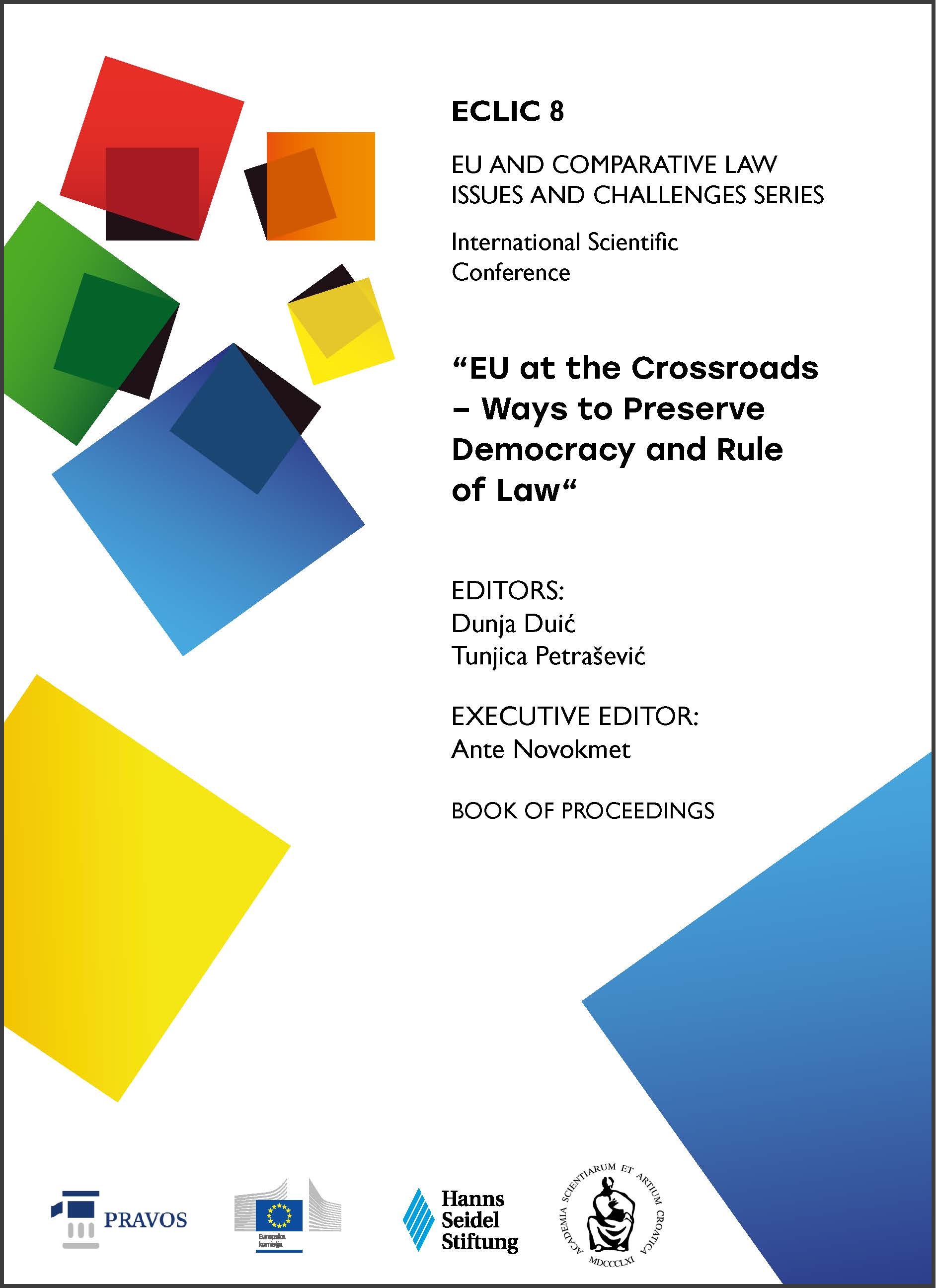HOW TO ENSURE FREE AND FAIR ELECTIONS IN THE EU AND BEYOND
A NEED FOR RULE OF LAW, DEMOCRACY AND HUMAN RIGHTS PRINCIPLES TO STAND TOGETHER
DOI:
https://doi.org/10.25234/eclic/32311Abstract
The objective of the paper is to examine the available mechanisms of the EU institutions to ensure a free and fair national and local election process in the EU Member States in the EU acceding countries. Over the past few decades, the EU institutions designed several mechanisms to protect the principle of the rule of law, that, however, have not been used in the election context. A need for securing free and fair elections has instead been recently emphasized through the European Democracy Action Plan adopted in 2020. Moreover, the right to political participation which contains explicit requirements regarding elections is also reflected in supranational human rights instruments, including the Charter of Fundamental Rights of the EU and the ECtHR, and as such justiciable before both supranational courts. The ECtHR case law in particular offers helpful insights into the level of protection of citizens voting rights.
For the acceding countries, elections come under the EU radar primarily through the annual Commissions reports, but could also become the subject of discussion earlier, depending on the EU institutions' views. In line with the 2020 Revised enlargement methodology, elections have been identified as one of the key sub-areas of the Fundamentals (Cluster 1), as part of the assessment of the Functioning of Democratic Institutions, without a clear link to the rule of law principle.
The authors argue in order to ensure fair and free elections, especially in countries which have lower level of democratic tradition, the rule of law principle and human rights protection also need to be put at the forefront and all three mentioned values treated as a “holy” trinity. The authors posit that the existing EU mechanisms are not sufficiently clear and mutually coherent to provide needed guarantees against the violation of free and fair election processes within both Member States and accession countries. Their identified shortcomings may lead to a possibility that the EU institutions “turn a blind eye” in particular cases, e.g. the Serbian 2023 elections, which are still awaiting the official EU Commission's reaction. In order to address these challenges, the authors attempt to propose how to develop a more comprehensive legal and methodological framework for ensuring fair and free elections, especially for acceding countries, but also within the EU realm.
Downloads
Published
How to Cite
Issue
Section
License
Copyright (c) 2024 Vesna Ćorić, Aleksandra Rabrenović

This work is licensed under a Creative Commons Attribution-NonCommercial 4.0 International License.
Authors retain the copyright on the papers published in the Journal, but grant the right of first publication to the Journal. Papers accepted for publication or already published in ECLIC of the Faculty of Law in Osijek may be published by the author(s) in other publications only with proper notice of its previous publication in ECLIC.


